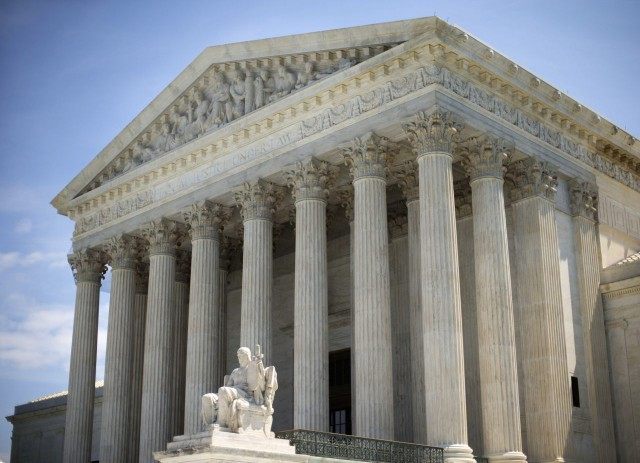WASHINGTON, DC – The Supreme Court on Monday granted review in two new cases that raise significant constitutional issues for reining in the scope and powers of the federal government.
With few exceptions, almost all of the Court’s cases are discretionary: the justices can decide whether to take the case. The High Court receives over 7,000 petitions for review each year – called a petition for a writ of certiorari – and grants fewer than 80.
The justices’ decisions on which cases to grant sometimes signal that changes in the law are in the offing. The two cases they took this week will either bring about such change or will reaffirm doctrines that conservatives have long hoped to change.
The Court granted review in Knick v. Scott, which asks the justices to reconsider a precedent that requires property owners whose property has been taken by the government to fully exhaust all avenues available to them through a state government before they can claim a violation of their constitutional rights in the Fifth Amendment’s Takings Clause, a process that can take years.
Government can take private property via eminent domain to build highways, public buildings, or something like a wall along America’s southern border. The Constitution’s Takings Clause provides that the government cannot take a person’s property for public use unless the government gives the owner “just compensation” – such as fair market value – for the property.
This is the latest Supreme Court case brought by Pacific Legal Foundation (PLF), which has had several major cases in recent years. PLF has won key victories for property rights in recent years such as the 9-0 decision in Sackett v. EPA, providing homeowners with the right to sue to stop a certain type of Environmental Protection Agency actions. Another PLF case, Minnesota Voters Alliance v. Mansky, was argued just last week.
The justices also granted review in Gundy v. United States, considering whether the Sex Offender Notification and Registration Act’s (SORNA) delegation of authority to the U.S. attorney general to issue certain regulations violates the “Nondelegation Doctrine.”
That doctrine provides that a law is unconstitutional when Congress delegates its lawmaking authority to the executive branch. The Court has not invalidated a federal law under that doctrine since 1935.
During the 1930s, the justices invoked that doctrine to strike down parts of President Franklin Roosevelt’s New Deal. Reviving that doctrine has long been a priority for judicial conservatives, as it would require Congress to spell out the details of laws and then answer directly to the voters, rather than empower bureaucrats to impose legal obligations through creating regulations. Reviving the nondelegation doctrine could significantly curtail the power of the administrative state.
Knick and Gundy should be argued this fall after the Court begins its next annual term in October.
Ken Klukowski is senior legal editor for Breitbart News. Follow him on Twitter @kenklukowski.

COMMENTS
Please let us know if you're having issues with commenting.